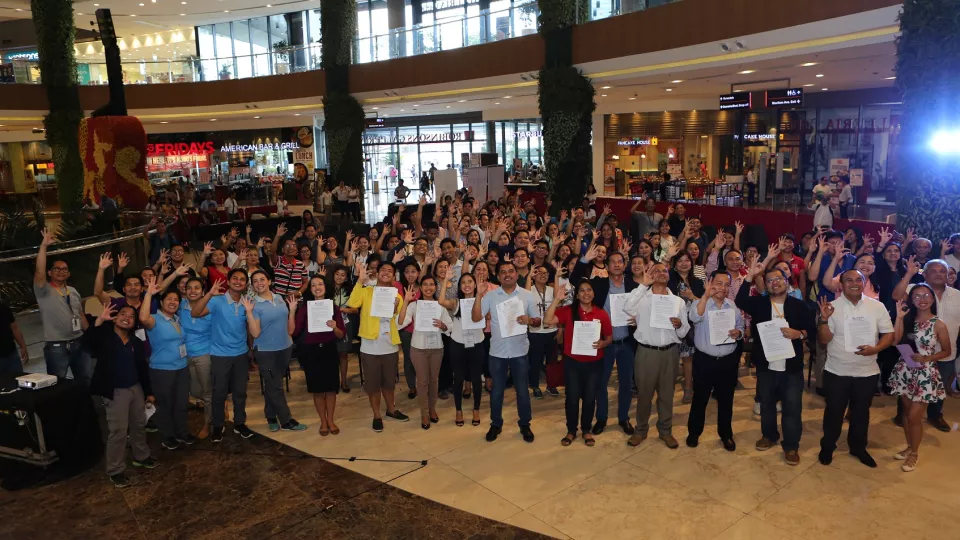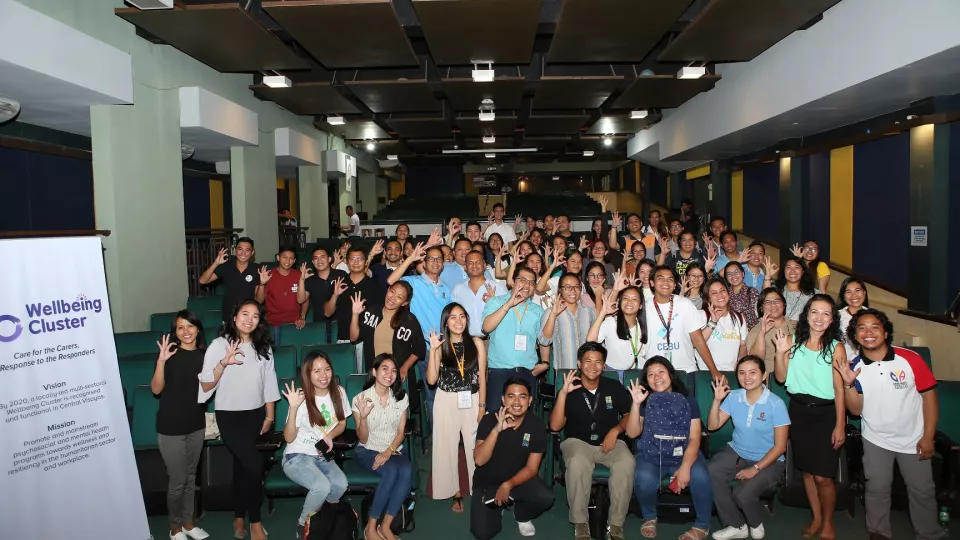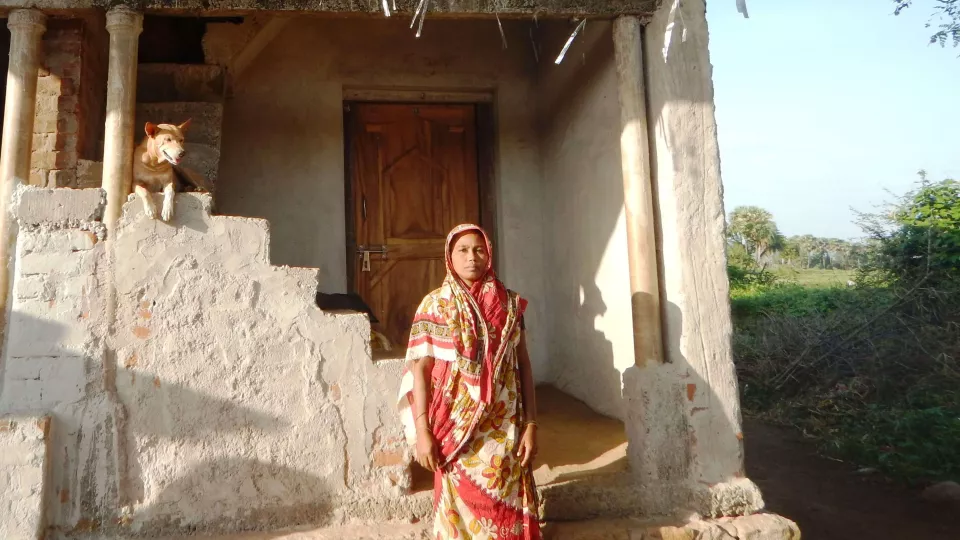
Wellbeing Clusters - A significant milestone
Hitendra Solanki, Action Against Hunger’s Project Lead for the Mindfulness & Wellbeing Project urges NGOs to act now to protect worker’s mental health and wellbeing.

Hitendra Solanki, Action Against Hunger’s Project Lead for the Mindfulness & Wellbeing Project urges NGOs to act now to protect worker’s mental health and wellbeing.

In Cebu, in the Philippines, the very first dedicated 'Wellbeing Cluster' has been officially launched, aiming to catalyse a new way that NGOs prioritise and support the mental health and wellbeing of staff in the humanitarian sector.
In 2015 the Start Network launched a three-year Transforming Surge Capacity (TSC) project financed with UK aid from the UK government as part of the Department for International Development’s (DFID) Disasters and Emergencies Preparedness Programme (DEPP). The project has seen engagement by eleven UK-based aid agencies with a collective focus on finding ways to ensure effective civil society surge capacity in order to deliver more efficient, collaborative and localised emergency responses.
Atif Sohail has more than 9 years of experience in programme management and monitoring and evaluation in emergencies (in Pakistan). Previously he was working with Muslim Aid Pakistan and is now working with Christian Aid to manage their response in Nigeria, through the Go Team Asia shared humanitarian roster.
The Asia Regional Platform of the Transforming Surge Capacity project has gathered 7 international NGOs to create the regional shared roster Go Team Asia, which provides surge support to emergencies across the region. Roster members receive many capacity building opportunities; trainings, simulation exercises, one-to-one coaching, and Trainings of Trainers (ToT). This case study shows how the collaborative nature of capacity building for Go Team Asia improves individuals’ and organisations’ ability to work together, which can help them provide faster and more adequate assistance to affected communities.

As of 2014, 26 out of the 35 deadliest tropical cyclones in world history took place in the Bay of Bengal. Myanmar, Bangladesh and India are all on this cyclone-prone belt, which makes them particularly vulnerable to disaster, yet the areas affected also include major business centres. With their capacities, businesses can thus play a major role in building resilience.
As part of the Transforming Surge Capacity project, seven international humanitarian NGOs have come together to test out collaborative app roaches to surge response in the Asia region. This case study highlights how Islamic Relief, one of the platform partners moving towards more regionalised surge systems, has been able to support inter - agency collaboration in the project, and how it used le arnings and outputs of the project to improve its own surge mechanisms.

A newly published report recognises there is a significant need for a gender balance in surge practice and much stronger support is needed for the critical role that women play in a humanitarian response.
This case study traces the collaboration of seven international humanitarian NGOs in Asia as part of the DEPP's Transforming Surge Capacity project. It identifies the enabling factors that have allowed the involved organisations to collaborate and produce an innovative inter-agency roster for Asia. It also captures what partners have learned from collaborating at a regional level.
Mutual trust is vital in collaboration, and collaboration is what the Transforming Surge Capacity Project aims to achieve, to ultimately improve the quality of emergency responses in Asia.